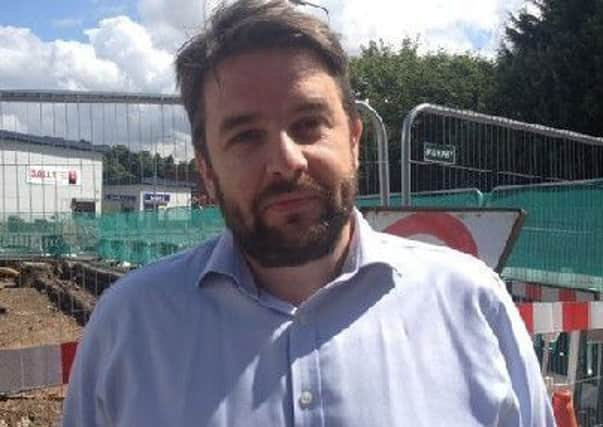£400m backlog of road repairs


That is the startling admission by the man in charge of the county’s 5,500 miles of roads, making Lincolnshire County Council one of the largest highways authorities in the country.
Coun Richard Davies - Executive Member for Highways at County Hall - has also revealed the authority is £25m short of the funding it needs this year to ‘stay on top’ of repairs.
Advertisement
Advertisement
That is despite Lincolnshire being ranked among the top two performing counties on highways matters - and has recently secured additional cash from Government for repairs.
Speaking last week, Coun Davies said: “We are £25m short of where we would like to be in terms of staying on top of repairs. There is probably a £400m backlog depending on the terms of how you measure it.”
Coun Davies said the hard-pressed authority is increasingly having to prioritise which roads it repairs - because of funding issues.
He said he ‘made no excuses’ for the fact money is targeted at roads with a poor safety record, such as the A17 and that some badly worn surfaces elsewhere might not be repaired.
Advertisement
Advertisement
Coun Davies confirmed the county was hoping to secure more cash from the Government to pay for new roads - and for much needed repairs.
He also revealed the county council receives more than 70,000 calls from residents every year reporting problems with road surfaces.
Coun Davies admitted the county highways department had saved around £7m in a series of cutbacks, including a reduction of around 28 staff, but accepted a new computerised system introduced in February designed to deal with complaints is not working properly. Reported faults were sometimes incorrectly being listed as fixed. He pledged to sort out ‘teething problems’.
In addition, Coun Davies revealed the authority is now buying data from mobile phone companies which records vehicle movements and helps decide how - and where - improvements are made. He stressed this provided vital information for highways’ officers to track road usage.
Advertisement
Advertisement
The authority’s high rating meant it was recognised the county spent its allocation of Government funding well: “We were one of only two counties this year not to have their (highways) budgets reduced,” he said.
Coun Davies also confirmed it was planned all town and parish councils would be allocated a specific highways officer to discuss major issues.
‘Walkabouts’ in larger communities will also be introduced, involving officers and local councillors.